BMW starts testing eTrailer for logistics purposes
The eTrailer from the Aachen-based company, which we have already discussed several times, is a semi-trailer with its own electric drive. It reacts to the driving behaviour of its coupled tractor unit. The idea is that the eTrailer’s drive relieves the tractor’s load – regardless of the type of drive, whether diesel, gas, battery-electric or fuel cell.
A brief review: In spring, Trailer Dynamics presented findings from France. There the company had tested the electric semi-trailer coupled with a diesel tractor unit from DB Schenker France in the field – and, based on this, cited a 24 to 55 per cent reduction in diesel consumption as a potential saving. In early summer, results from a field test with a battery-electric tractor unit of the eActros 300 from Mercedes-Benz followed. The key finding of Trailer Dynamics at the time was that the combined range of the eActros 300 could be increased to over 600 kilometres. For the eActros 300 tractor alone, Mercedes-Benz states a maximum range of 300 kilometres.
So much for the preface. Now there are further results from BMW headquarters. The carmaker is flirting with the technology for its (plant) logistics. The aim is to “identify the best application scenarios for BMW Group Logistik”, they say. The pilot tests with the eTrailer from Trailer Dynamics took place over four days on short and medium distances in the area of the BMW site in Dingolfing and also over three days on the long distance between Mamming in Lower Bavaria and the BMW plant in Leipzig. The freight forwarders Gahr International and Elflein Spedition & Transport acted as partners.
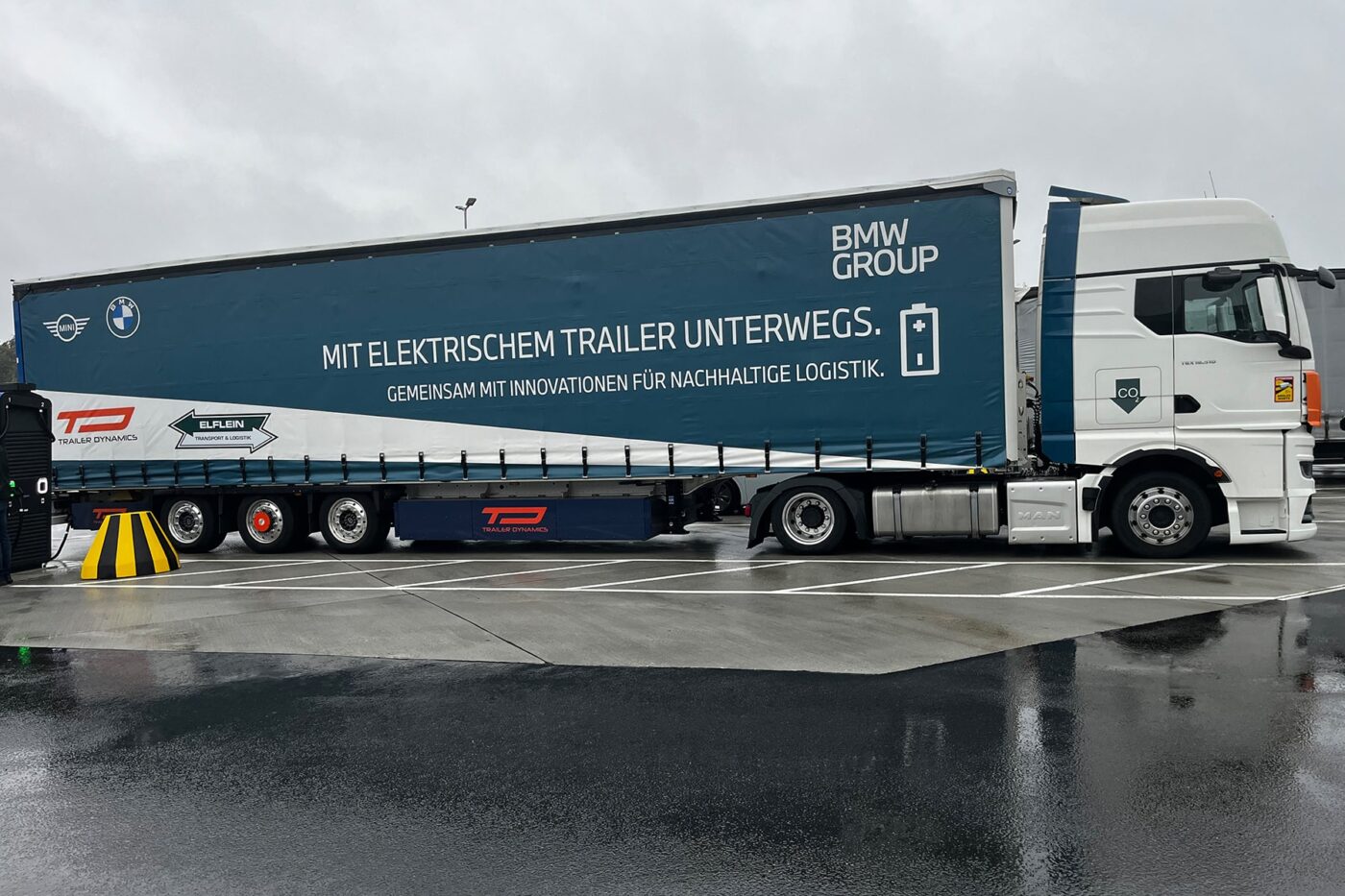
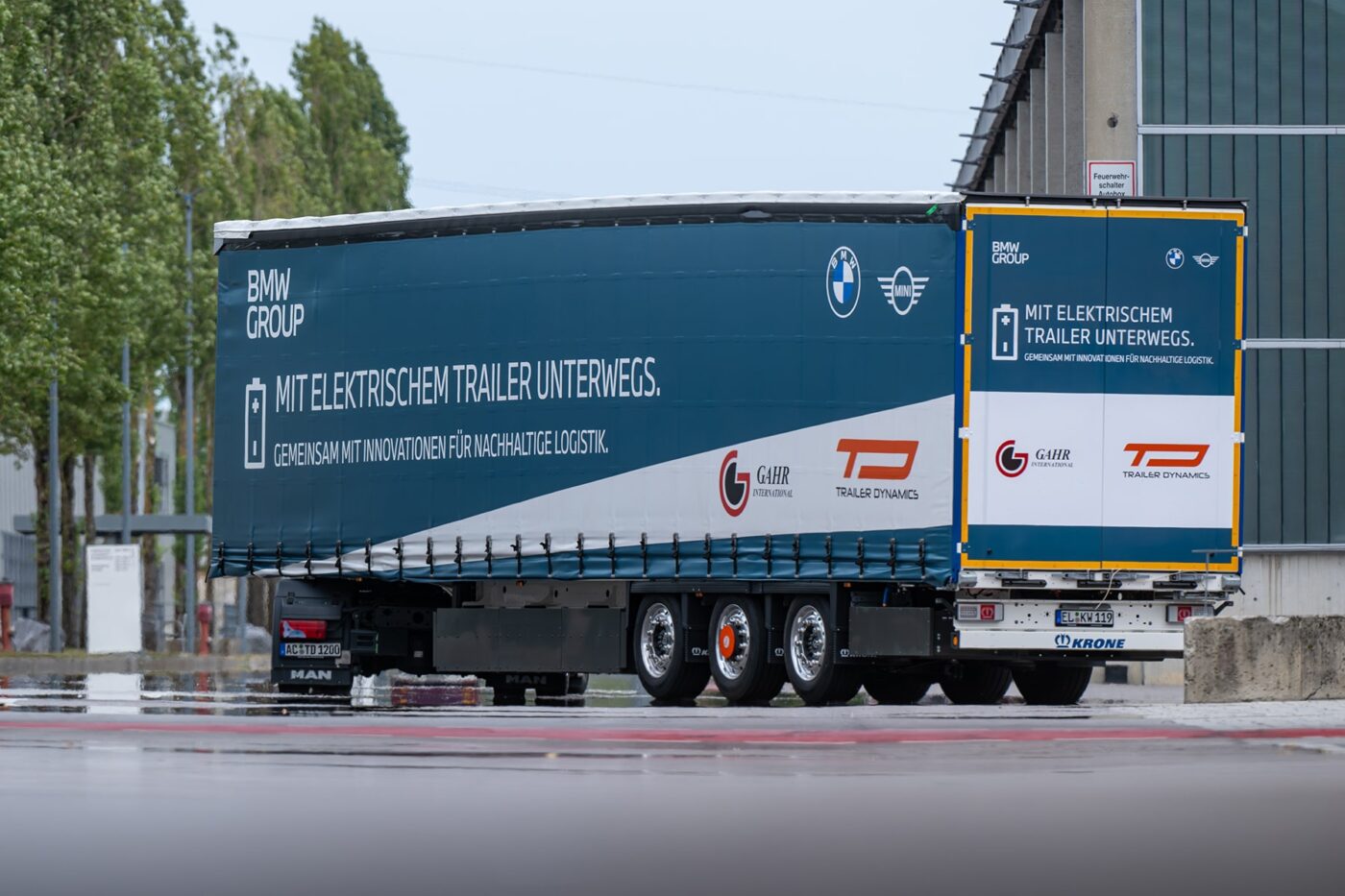
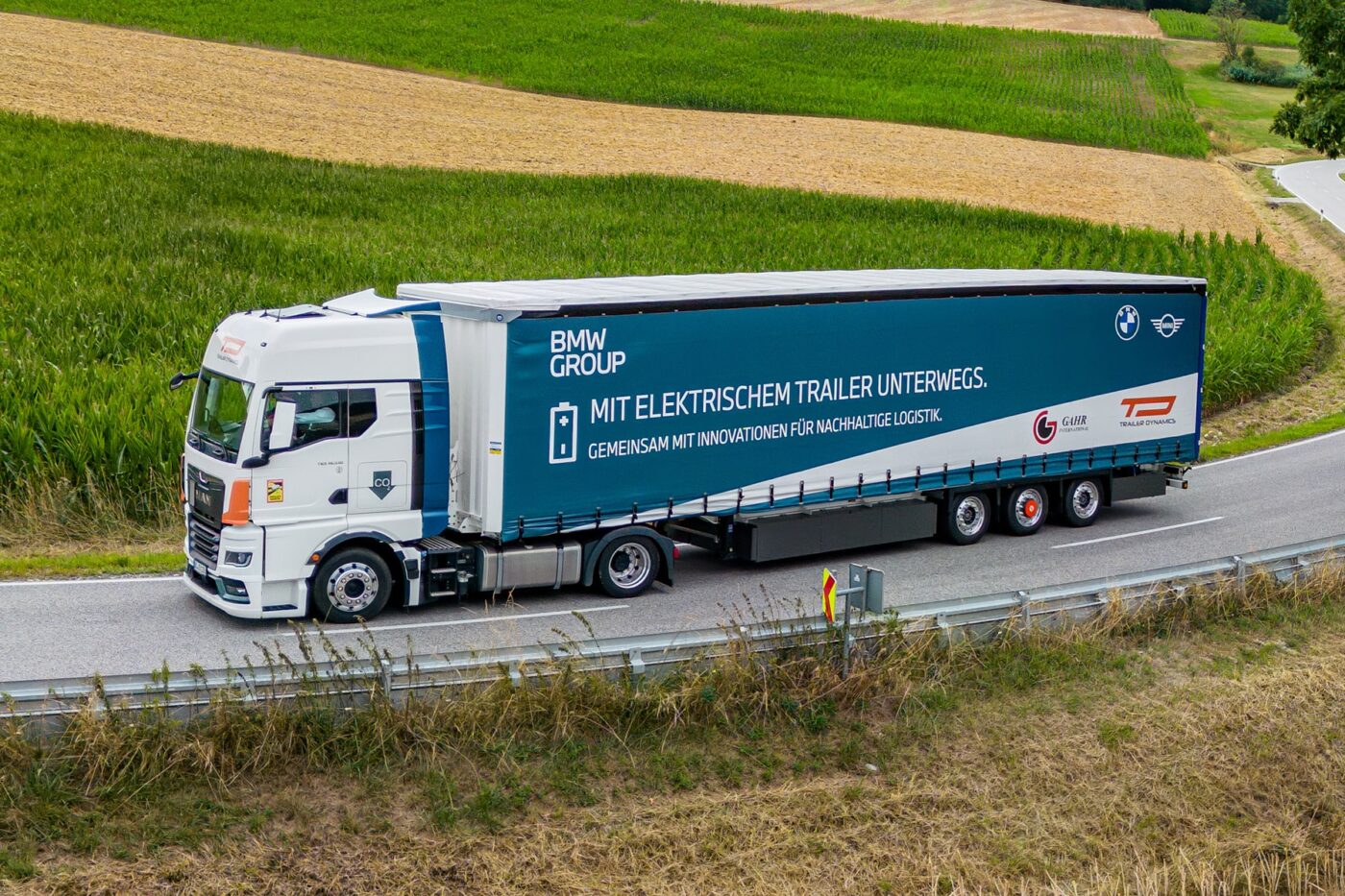
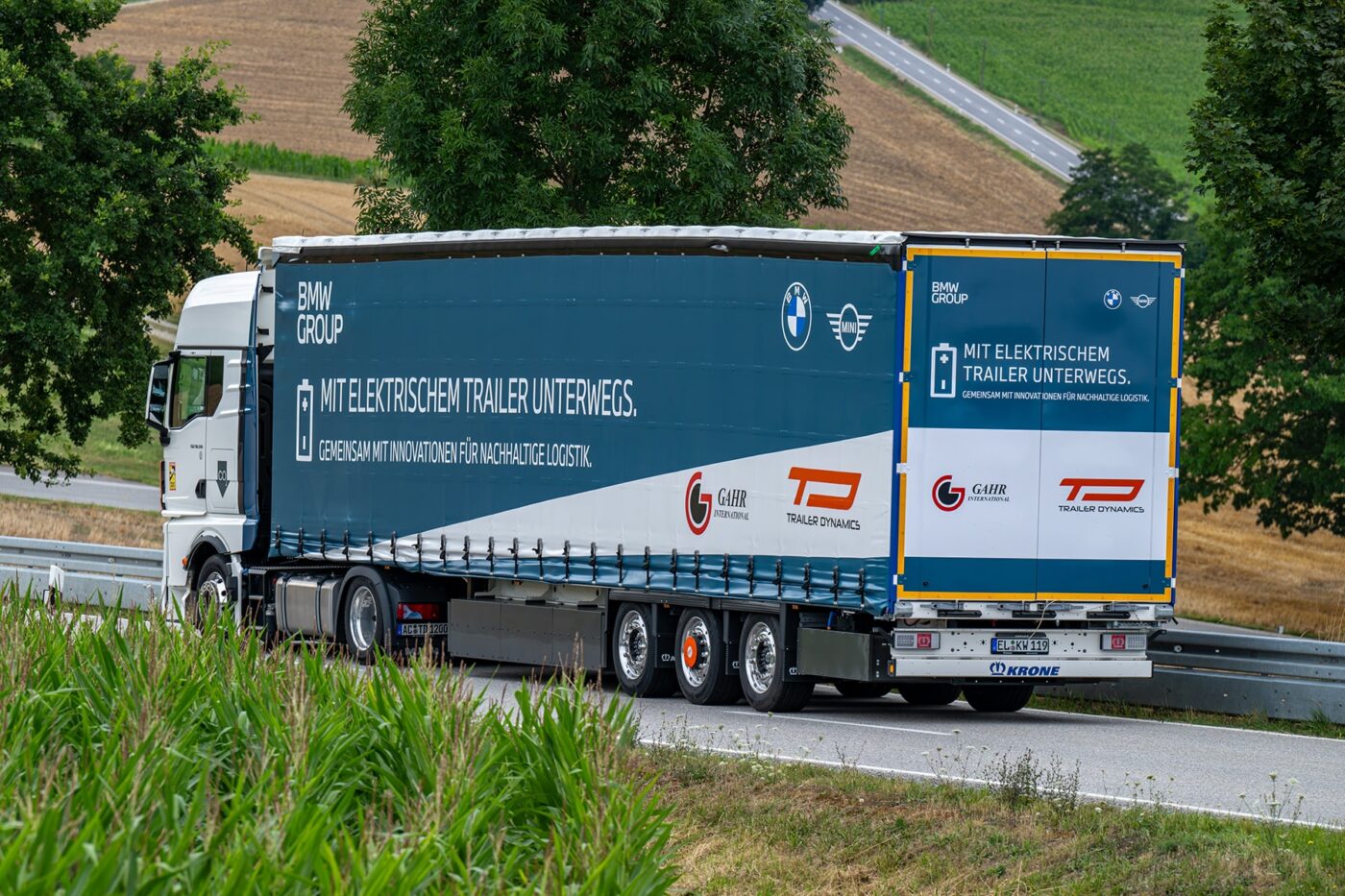
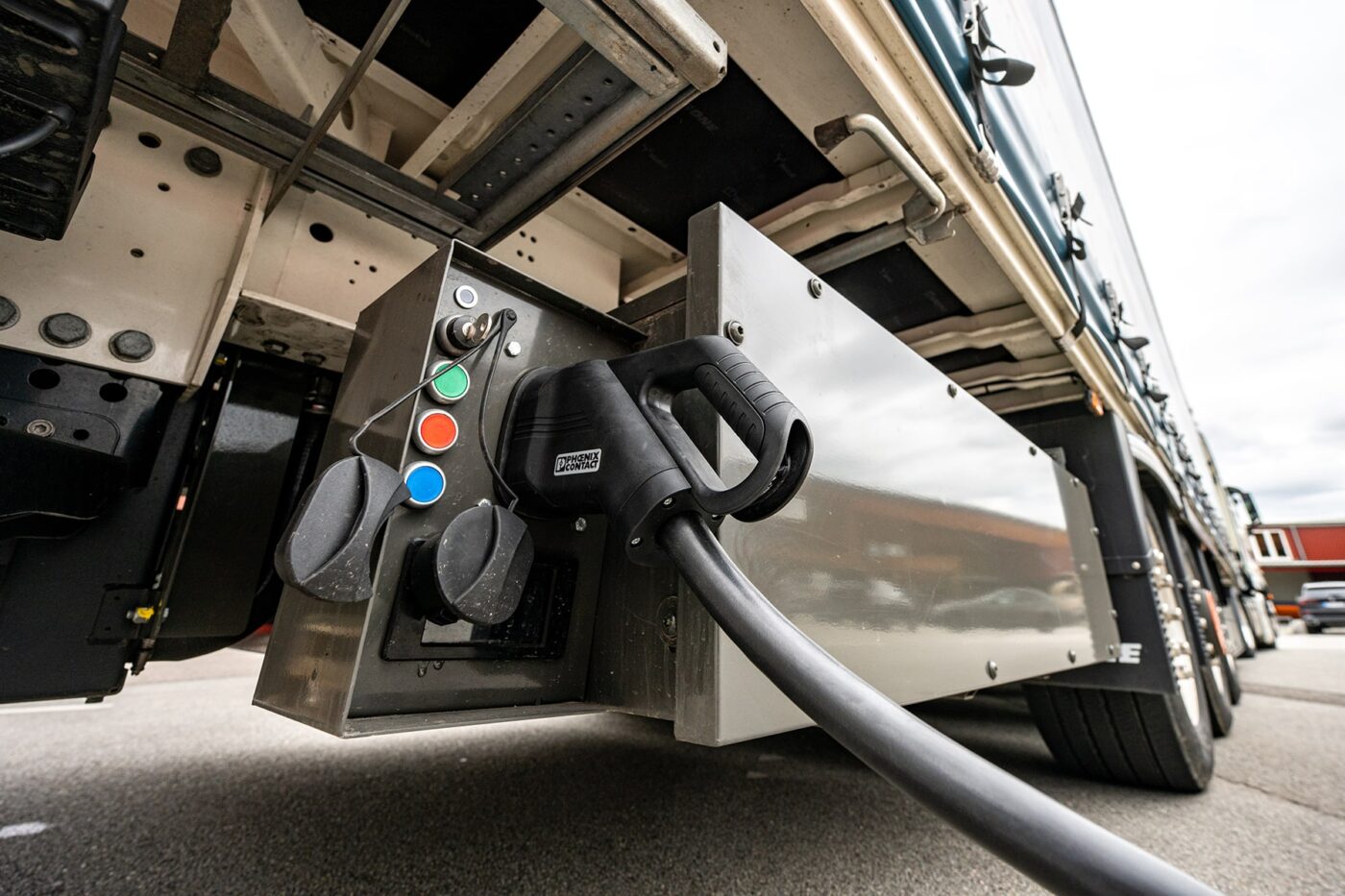
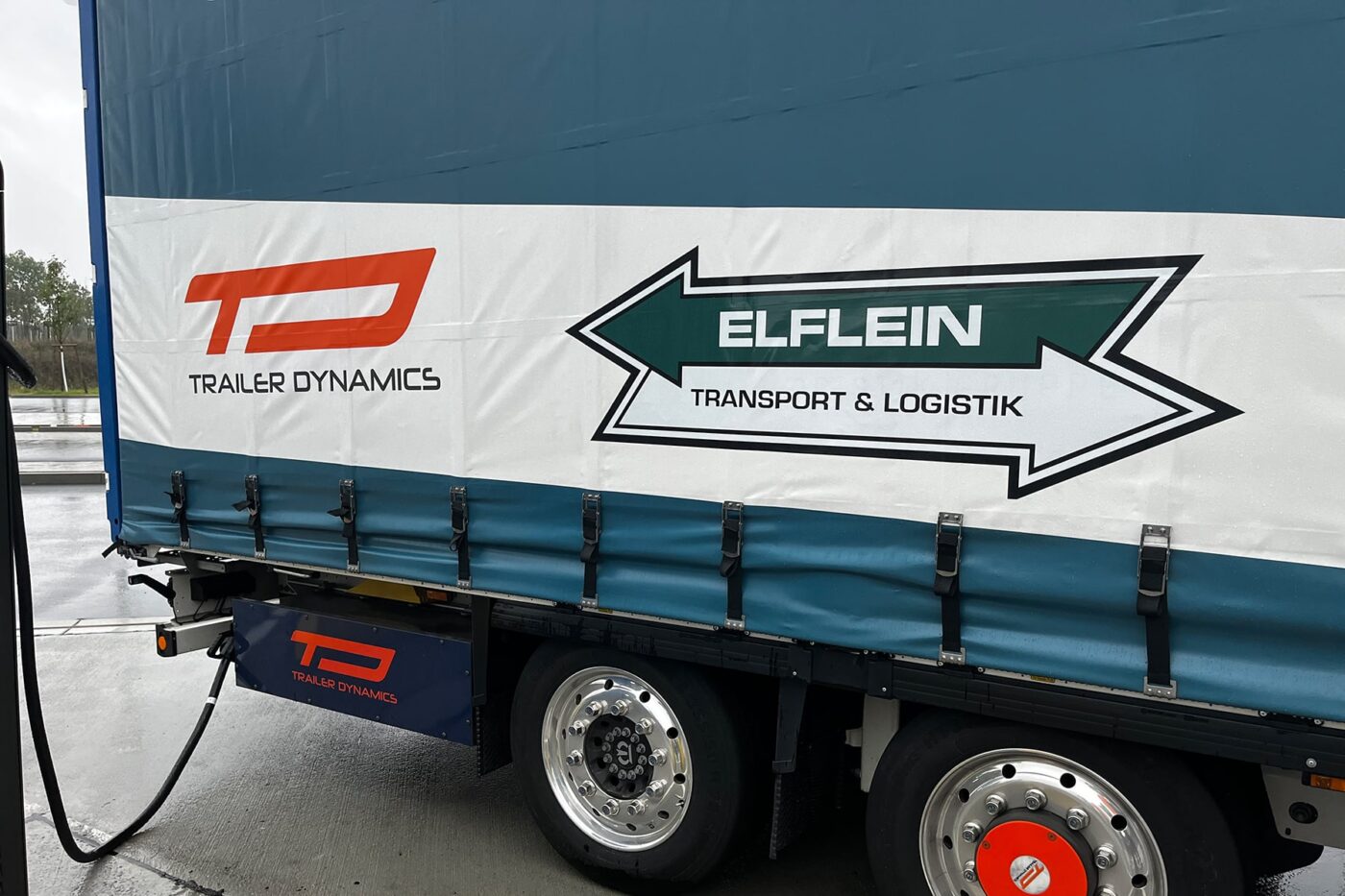
According to BMW, the diesel truck used in the test achieved fuel savings of more than 46 per cent on average for short and medium distances and more than 48 per cent for long distances. With a combination of electric tractor and e-trailer, the partners achieved a range of more than 600 kilometres – similar to the results of the eActros 300 from May this year. This time, however, an electric truck from Volvo was used. The Munich-based company does not specify which model exactly.
“As the BMW Group, we are – as the first German car manufacturer – a member of the ‘Business Ambition for 1.5°C’ of the Science Based Targets Initiative and are committed to the goal of complete climate neutrality across the entire value chain,” says Michael Nikolaides, Head of BMW Group Production Network and Logistics. “That is why we are consistently driving forward the BMW Group’s Green Transport Logistics strategy with forward-looking projects. The pilot tests with the E-Trailer from Trailer Dynamics have shown that the use of such electrified semi-trailers significantly reduces the fuel consumption of regular diesel tractors and remarkably increases the range of e-trucks.”
Regarding the completed medium-distance tests around Dingolfing, the carmaker specifies that the “round trip transports with demanding route topographies” were completed. The team covered up to 250 kilometres per day on motorways and country roads, with “automated and simultaneous data acquisition from the e-trailer and tractor taking place for the first time”, as BMW emphasises. This determined a reduction in the diesel consumption of the tractor unit of 46.59 percent on average.
The long-distance tests were also carried out on a real logistics route and with a load of more than 16 tonnes between Leipzig and Mamming. Over a distance of 450 kilometres – mostly on motorways – the partners transported energy modules for BMW electric cars in the eTrailer. Compared to journeys with a conventional trailer and the same load, the Munich-based company achieved average diesel savings of more than 48 per cent.
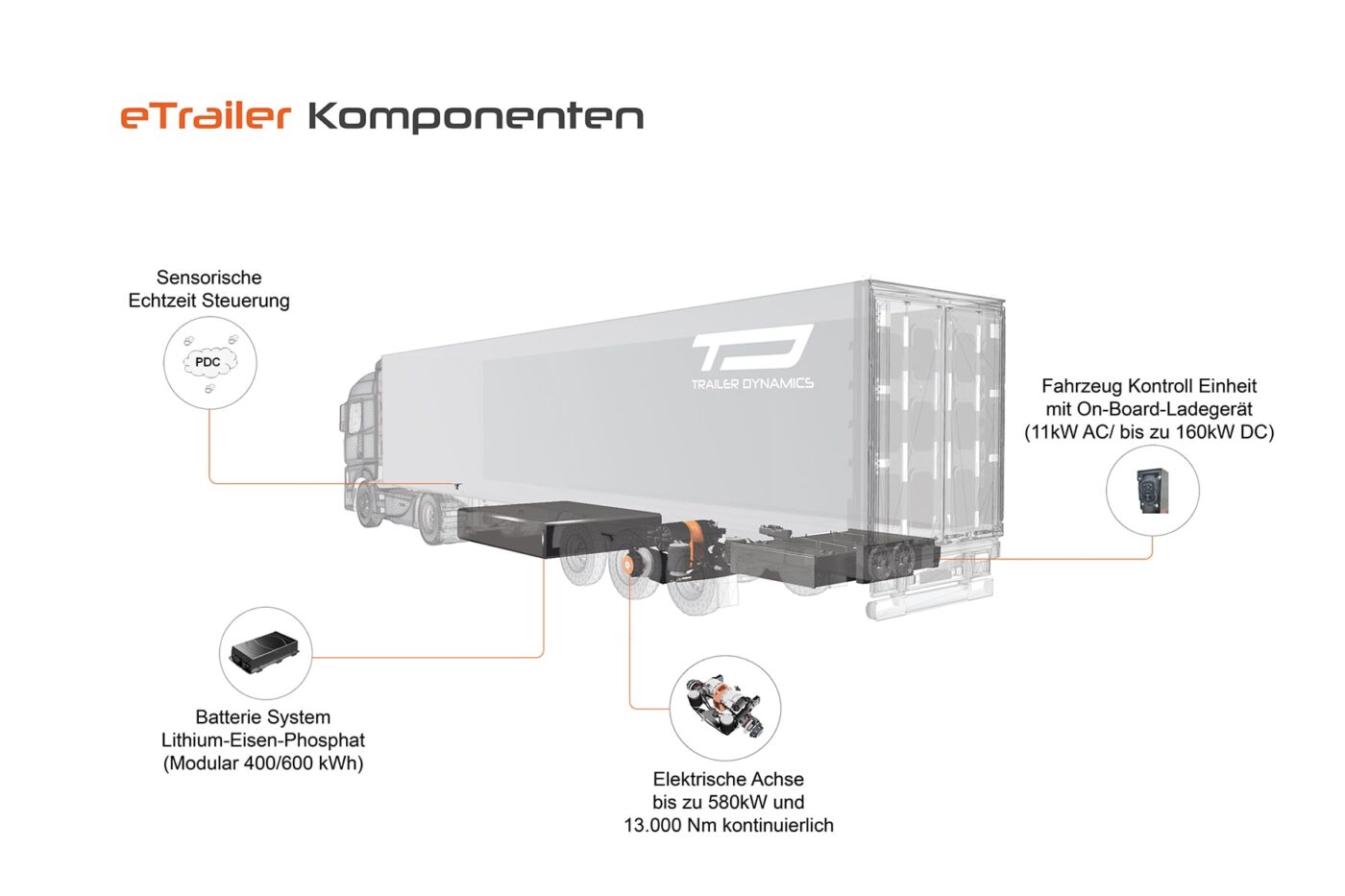
BMW’s concludes as follows: “A 100 per cent reduction in CO2 while simultaneously enabling long-distance routes can be achieved by combining an e-trailer with an electric tractor and 100 per cent green electricity.” But: “The fuel savings when using e-trailers are counterbalanced by their heavier weight and the resulting lower payload, but this is partially offset by an increase in the permissible total weight for trailers in the EU. The higher acquisition costs of the e-trailer are counteracted by lower operating costs. Over long distances in particular, the use of e-trailers can facilitate a significant decarbonisation of the existing fleet while simultaneously saving costs.”

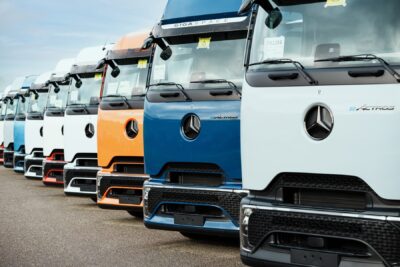
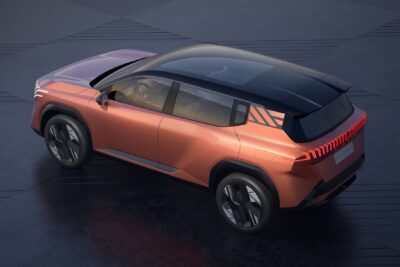
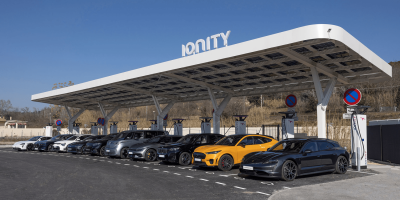
0 Comments